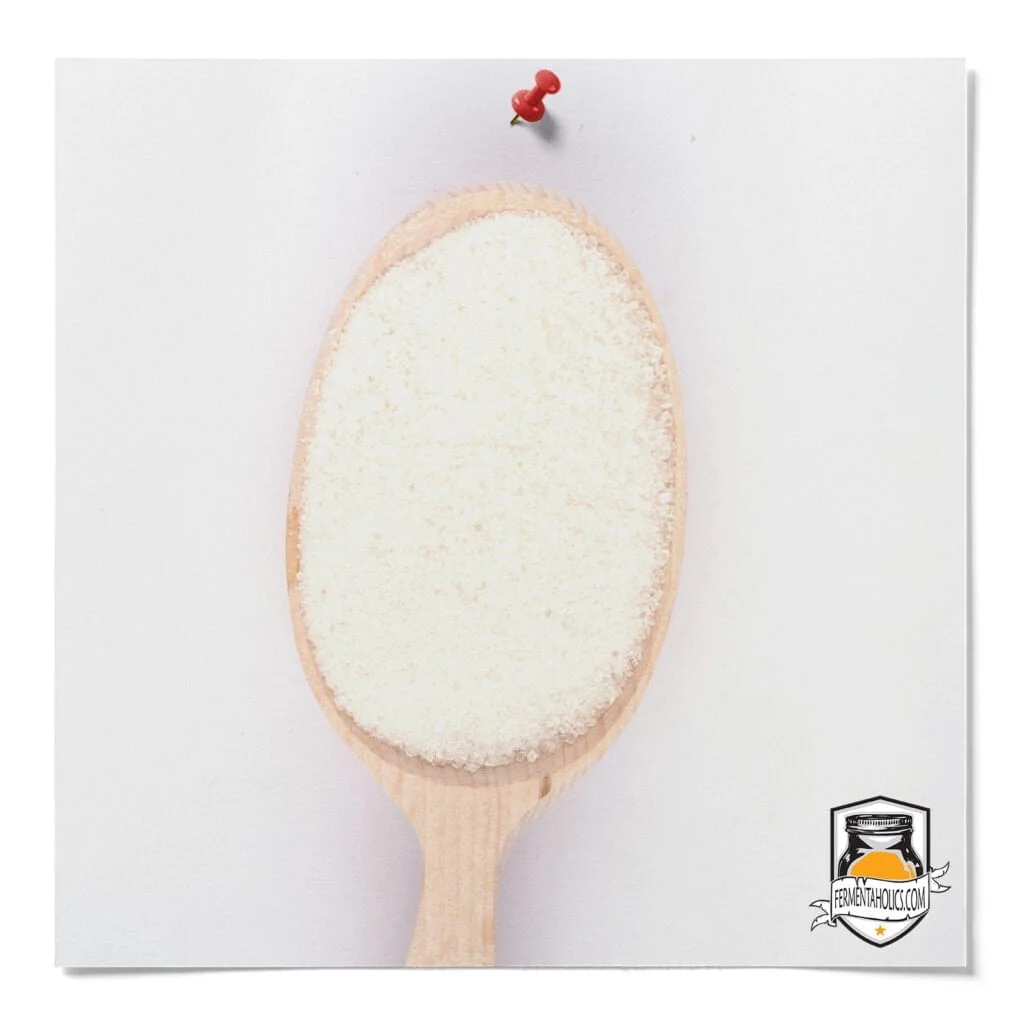
Kombucha has been growing in popularity over the past few years. A lot of attention and interest has come from the health and fitness industry. This should come as no surprise, given the seemingly countless health benefits kombucha boasts. But since health-conscious people are drinking more kombucha, we tend to get questions about kombuchas sugar content.
The short answer is no. Kombucha is made with four ingredients: water, tea, sugar, and a SCOBY (which stands for “symbiotic culture of bacteria and yeast”). Kombucha is fermented sweet tea; this means the yeast in the SCOBY feeds on the sugar. The yeast consumes sugar and creates co2 and alcohol. The bacteria then convert the alcohol into beneficial acids.
💡The bottom line: without sugar, the SCOBY has nothing to feed on, meaning there will be no fermentation. Sugar is the main ingredient that kicks off the chain reaction in the primary kombucha fermentation. Without sugar, your yeast has nothing to convert into alcohol, and the bacteria can’t turn the alcohol into your beneficial acids. Sugar is the ingredient that keeps the fermentation alive and thriving.
You can’t, but you can control the sugar content of homemade kombucha. So just because kombucha can’t be brewed without sugar doesn’t mean it has to have a high sugar content. Kombucha is made by fermenting sweet tea, and during this process, the SCOBY feeds on the sugar, so the final product (the kombucha that you end up drinking) doesn’t have much sugar in it at all.
No, not at all. If you can brew sweet tea, you can brew kombucha. It’s as simple as that.
Some commercial brands of kombucha have around 5-7 grams of sugar. You’re not looking at a whole lot when compared to the amount in other soft drinks. Very often, soft drinks are in the range of 30-50 grams and sometimes even higher.
💡Remember: while kombucha does have sugar, the health benefits far outweigh the negative aspect of sugar content. In fact, experts on the paleo diet who strive for a near non-existent sugar intake have stated that kombucha is paleo-friendly, so even those who follow paleo’s strict sugar rules can still enjoy kombucha!
If you brew homemade kombucha, you have a shot at making kombucha with a lower sugar content than the commercial brands!
When you place your SCOBY into your brewing container with all of the other ingredients, those bacteria and yeast immediately start feasting on the sugar. If you’ve made kombucha before, you know it takes time to ferment. The primary kombucha fermentation can take anywhere from 7-21 days to complete. The length of time mostly varies depending on your kombucha brewing temperature.
💡Pro Tip: The longer you let kombucha ferment, the more sugar the yeast consumes. The yeast converts the sugar to alcohol. Then the bacteria convert the alcohol to acetic acid. This means that a kombucha brew that ferments longer will be less sweet and have less sugar than a kombucha fermented for a shorter period. If you’re going for minimal sugar content in your home-brewed kombucha, let that SCOBY ferment a bit longer.
So, you can’t make kombucha without sugar. But you can still enjoy drinking it even if you’re watching your sugar intake. After fermentation, kombucha usually has a low amount of sugar remaining in the final product. And don’t forget: homemade kombucha provides you with a lot of flexibility. One of which is the flexibility to control sugar content by letting your kombucha ferment longer, lowering the sugar content.

Sugar is a crucial ingredient in the fermentation process of kombucha. It serves as a food source for the SCOBY (Symbiotic Culture Of Bacteria and Yeast), allowing it to produce beneficial acids, vitamins, and carbon dioxide that gives kombucha its characteristic fizz.
No, sugar is an essential ingredient for making kombucha. The SCOBY needs sugar to ferment and produce the necessary components of kombucha. Without sugar there is no fermentation.
Artificial sweeteners cannot be used to make kombucha because they are not recognized as food for yeast. They can be used in the bottle stage, just not primary fermentation.
Yes, you can use honey to make kombucha.
The majority of the sugar is consumed during the fermentation process. However, depending on the length of fermentation, residual sugar will remain in the final product.
The longer the fermentation time, the more sugar is consumed by the SCOBY. This results in a final product with less residual sugar, making the kombucha less sweet.
